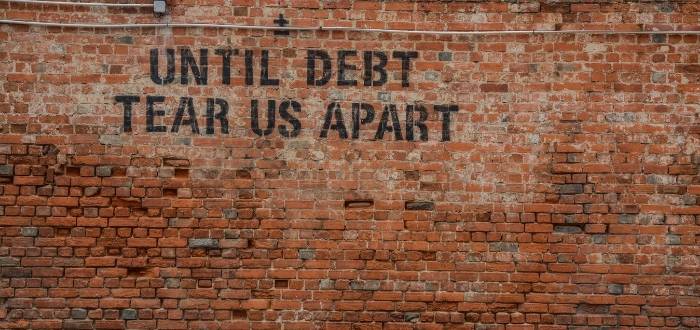If you’re like us, you’re probably craving those half-time orange wedges that always seemed to give you just enough energy to sprint back onto the field when the second-half whistle blew when you were a kid. So far, 2020 has left most of us feeling battered, bruised, and more than a little apprehensive about what the next six months will bring.
Maybe this is a reminder that when you pause and take a moment to re-energise with a metaphorical orange wedge or two, you can surprise yourself with just what’s possible. As bleak as this year has been with the economic fallout from natural disasters and COVID, there are still a lot of positives.
At Optimum, we’ve experienced two excellent months of collections, following our proactive and positive approach to negotiating with our clients’ debtors. We’ve managed to put many reasonable payment plans in place, and have also secured full settlements.
The other big positive is that many of our clients are using this time to get their ducks in a row reassessing their terms and conditions, and establishing solid processes and procedures to sure up their cash flow and minimise risk.
Now, get into those oranges, dust yourself off and let’s get back out there and win this thing!
Angela McDonald
Managing Director

What the latest data tells us
CreditorWatch recently released its latest data that paints a telling snapshot of the current state of play for small businesses in Australia.
KEY STATS
Late payments
In June 2020, payments were overdue by an average of 49 days across all industries. On a standard 30-day account, that’s 79 days or even longer if the customer purchased early in the month.
This is a 342% increase from June 2019.
These figures suggest businesses are heavily relying on government subsidies and a compassionate approach from creditors.
Slowest paying industries
Public Administration & Safety – up 1,067% YoY to average 35 days overdu
Arts & Recreation – up 900% YoY to average 60 days overdue
Information Media & Telecommunications – up 780% YoY to average 44 days overdue
Rental, Hiring & Real Estate – up 677% YoY to average 70 days overdue
Financial & Insurance – up 650% YoY to average 75 days overdue

Ok, let’s get down to the nitty-gritty
What does the next 6 months have in store for small businesses?
There’s no denying that the next six months will be tough, especially once the Government’s business incentives end in September. There are many companies out there that should have ceased trading months ago but have been kept alive by the cash stimulus and support. But once Job Keeper and the other incentives cease, we will likely see a big increase in insolvencies across the board.
There’s been a lot of discussion in the credit and collection space about so-called ‘zombie companies’ emerging after COVID-19. A zombie company is classified as one that is only solvent now due to government financial assistance because they’ve taken on too much debt to be viable long-term.
Here are some tips to protect your business from being bitten by a zombie company:
1. Firm up your terms and conditions: We can review your current T&Cs to make sure they’re still viable in a post-pandemic world. We’ll identify any gaps that may leave the door open for hard-to-recover debt and ensure that your business has adequate risk protection in place.
2. Watch and monitor: There is so much information available that can help you pick up on any signs of financial distress in time to act. Register with a credit bureau and ask them to review all of your clients – no matter how long you’ve been dealing with them. They’ll identify any red flags, and then send you automatic alerts if they detect any worrying signs in the future. If you’re not sure where or how to start credit checking and monitoring, call Alex Perez from CreditorWatch on 0431 792 555, or email Alex at alex.perez@creditorwatch.com.au. Make sure that you let Alex know that you work with Optimum Recoveries to receive extra support.
3. Stay in regular contact: Don’t be shy about communicating regularly with your clients and suppliers. You’ll pick up on any worrying changes in their behaviour or attitude, such as over-promising or escalating excuses. An open and transparent communication line can be a great tool in uncovering issues earlier rather than later.
Unfortunately, none of us has a crystal ball to see the future with certainty, or a magic wand to make everything better. All we can do is stay vigilant and ensure that as business owners, we are doing everything possible to minimise risk.

Got debts owing? Now is the time to swing into action
By Helen Dickson
The significant changes to Australian solvency laws in response to COVID-19 may have caused some debtors to adopt a false sense of security when it comes to monies owed. While many debtors have done the right thing, we have also seen a few with ‘head-in-the-sand’ attitudes who choose to view this six-month moratorium as though it’s here to stay.
Despite the minimum debt threshold for creditors issuing statutory demands increasing from $2,000 to $20,000, and the response time increasing from 21 days to 6 months, the end date for this ‘holiday’ period is looming fast. On September 26, 2020, debtors may face a rude shock when these temporary changes, and other Government incentives such as Job Keeper, inevitably end.
Can you still chase a debt before the end of September 2020?
Absolutely. The next eight or so weeks presents a critical opportunity for creditors to communicate and negotiate with their debtors to establish a fair and realistic interim payment plan, with a view to increasing payments as and when they are able. Some money coming in the door is better than none, so if there’s a way to chip away at the debt during this time, you’ll not only be reducing your bad debts but potentially saving your debtors from insolvency in the last quarter of the year.
If your debtor is unresponsive and uncooperative, you can still commence legal action for the debt at this time; however, any Judgment you obtain will be best served after September 26, 2020, when more enforcement options will be available to you.
What else can you do now?
Get professional advice to put your house in order! Are your terms and conditions watertight? Are you effectively using technology to monitor your current and prospective customers, so you don’t get caught out if they don’t weather this storm?
We have been proactively helping clients across a wide range of industries tighten up their terms, better understand their commercial contracts and lease arrangements, and be aware of exactly what the temporary COVID-19 legislative changes mean for their business.
We love our advisory role, and we believe this is what sets us apart. Far from being just a debt collector, we want to help you prevent and manage debt for the longevity of your business.
So, especially during these strange times, make sure you’re not exposed to unnecessary risk. Contact Helen Dickson at Optimum for expert help. Call her on 1300 556 937, or email her at hdickson@angela

What happens when you just can’t get blood out of a stone?
It might be time to consider Alternative Dispute Resolution
By Craig Mason
When times are this tough for businesses, recovering a debt can be even more challenging. But that doesn’t mean that your only option to have the issue resolved is going to Court. Alternate Dispute Resolution (ADR) may be a more appropriate course of action and potentially a fairer option for all concerned. With the end goal being to get paid what you’re rightfully owed, cooperating with your debtor to establish a reasonable way forward can work in your advantage.
What is ADR?
ADR refers to any other processes available to resolve a dispute that don’t involve going to Court. It was established to offer an alternative to litigation to enable wider access to justice. The parts of ADR relevant in the current climate are: Pre-Negotiation: To ascertain whether a debtor genuinely does need more time to settle a debt, we ask them to supply a Statement of Financial Position on your behalf.
Negotiation: When the parties come to an agreement or solution to the dispute between themselves and the agreement is committed in writing.
What are the benefits of ADR compared to litigation?
The benefits of adopting a more open and reasonable approach to resolving a dispute can be significant. It can save you a lot of money, time and stress, and it can also allow for more flexible solutions that might not be available in Court. With less formality than a Court proceeding, parties can exercise more control over the process, including the location, scheduling and pace.
Why involve Optimum Recoveries or a lawyer?
It’s always wise to involve either Optimum or a legal representative to handle this process so that your debt isn’t further compromised. We’ll ensure that when you’re making a new payment arrangement to resolve an existing debt you still have flexibility. If you are locked in with no opportunity to review the arrangement, then if your debtor’s situation changes for the better, you won’t have any room to adjust to your advantage. If you would like to discuss ADR options that may be available and provide advice about the best way forward for your circumstances, contact Optimum Recoveries.

Moving Upwards at Optimum
By Angela McDonald, Optimum Recoveries
We’ve taken a moment to reflect on our business Mission, Vision and Values. As part of this process, we’ve also considered our operational structure and our key roles and responsibilities to make sure these are aligned and delivering on our objectives. I’m very pleased to announce that three Optimum Recoveries team members have received promotions as a result!
- Our Mercantile team will be led by Helen Dickson, National Manager – Collections
- Melissa Rafferty confidently supports the life-blood of our clients’ businesses as Specialist – Cash Flow Collections.
I’m sure you’ll join with me in congratulating these valued members on their performance in keeping our clients’ cash flowing, and on their promotions.
BRISBANE SYDNEY MELBOURNE
1300 556 937 I optimumrecoveries.com.au




